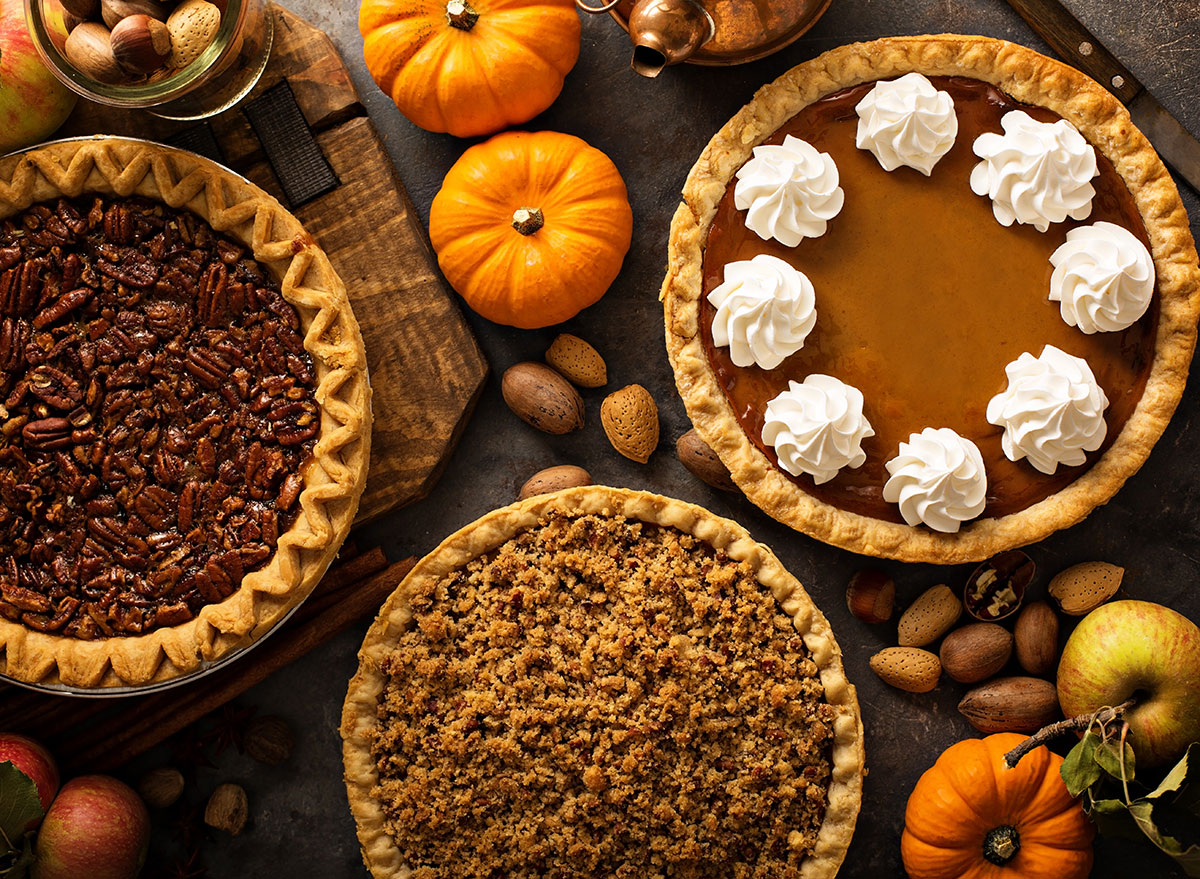The #1 Worst Eating Habit During the Holidays, Says Dietitian

Most of us approach the holidays with an all-or-nothing mentality. We either pledge to eat well, restrict ourselves and likely lament about our diet choices. Or, we decide to enjoy ourselves wholeheartedly and eat with abandon. This type of black-and-white thinking is actually the reason you struggle to feel successful around the holidays.
If you decide to enjoy yourself over the holidays, you might plan to save up your calories before the big feast. Logically, restricting calories to prepare for overeating at a big holiday dinner sounds like the solution to preventing weight gain over the holidays.
Yet, what if I told you that strategy could be causing you to eat more calories by the end of the day?
The ugly side effects of restriction
Restricting calories has both physical and psychological impacts on our health.
Physically, of course, we experience increased hunger and cravings when we intentionally restrict our food. If you have been on a diet before, you have likely experienced the feelings of deprivation, increased hunger, and low energy levels that ensue.
Psychologically, on a restricted-calorie diet, we experience changes in cravings, mood, patience, and attention span.
This combination of increased hunger, intense cravings, and low energy is often the perfect storm of reactions that lead to overindulging.
Afterward, overindulging often causes feelings of food remorse, guilt, and discomfort, leading us vowing to begin another restrictive diet tomorrow.
Understandably, the argument for eating more food in addition to potentially overeating at a large holiday meal may give you pause.
Instead, choosing to not restrict yourself and eating moderately can improve your physical and psychological responses during the festivities this year.
A balanced approach for the holidays
Going into the holidays with a health-centered plan is a great strategy to set yourself up for success. Consider crafting a small list of achievable habits that you feel confident you can maintain throughout the holiday season. I call these “non-negotiable daily actions.” These are small, daily actions that make you feel your best.
Contrary to the all-or-nothing approach, this strategy allows you to double-down on a select few “dial movers” that help you feel successful.
The only rule here is that the habits need to be easy enough for you to do them every day—even on an actual holiday!
An example of your non-negotiable daily actions might be drinking eight glasses of water, eating a high-protein breakfast to feel full, and going for a 10-minute walk.
These actions are simply examples—consider your personal goals when making your own list! Choosing three big dial movers to focus on this season can keep you focused on healthy habits without falling into the all-or-nothing diet trap.
You’ll thank yourself at the end of the year when you have been successfully maintaining healthy habits and do not have the dreaded feeling of ‘starting over’ come January.
Looking for some healthy goals you can maintain this holiday season? Check out our list of the 7 Healthy Eating Habits for the Holidays, Say Dietitians.